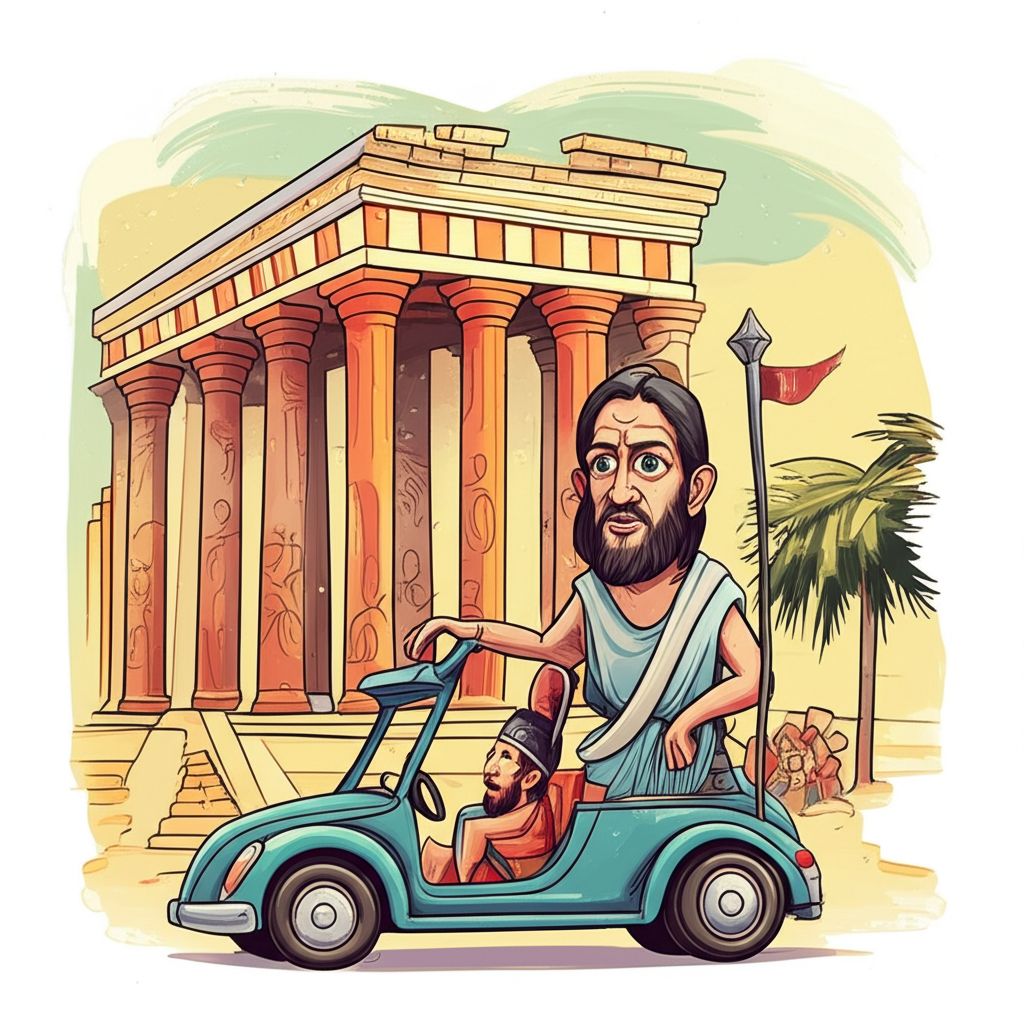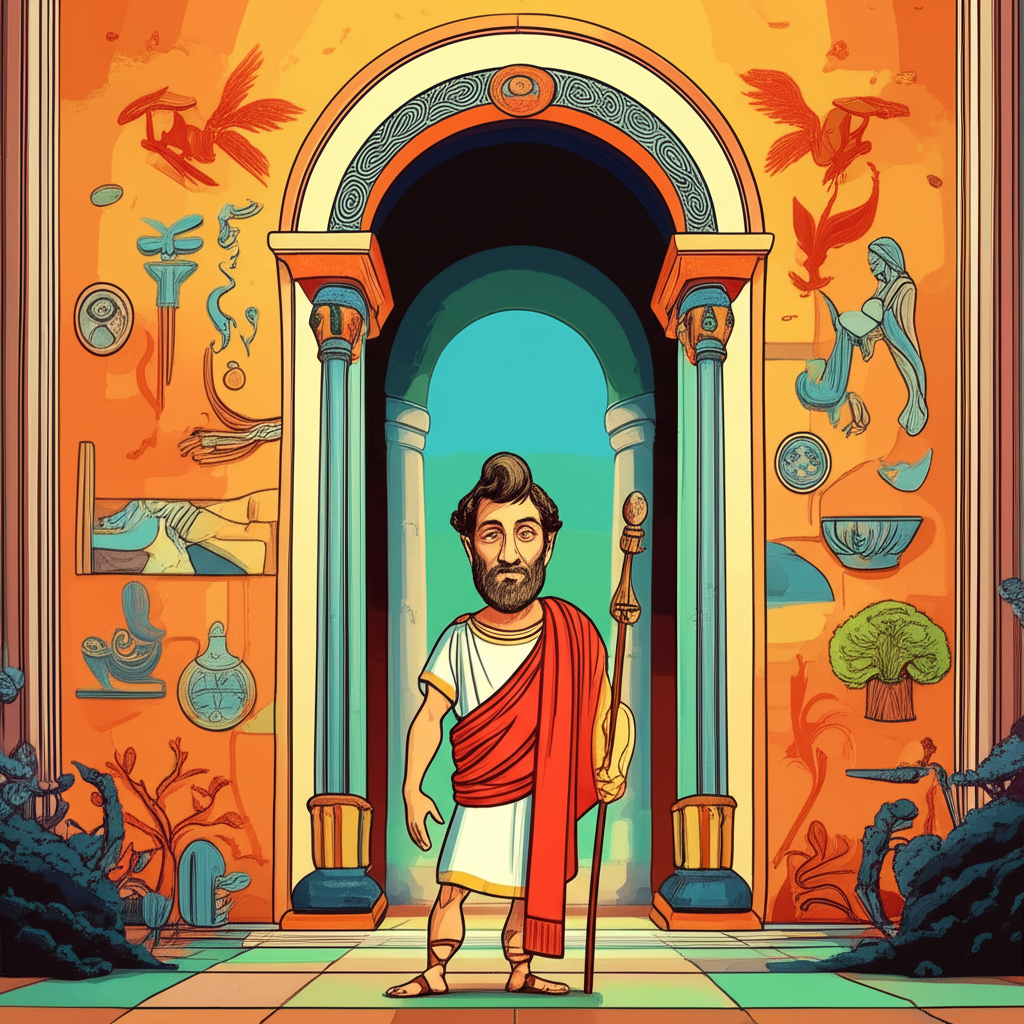Introduction:
The tale of Heracles, known in Roman mythology as Hercules, is a cornerstone of ancient Greek mythology. These myths, passed down through generations of storytellers, bards, and playwrights, originated in the ancient Greek world, a civilization that flourished in the lands surrounding the Aegean Sea. This is not a story of divine truth, but a window into the imagination, beliefs, and values of the people who lived in that era. It’s a traditional story, a product of a vibrant oral culture, designed to entertain, educate, and impart wisdom, not to be taken as a literal historical account. It serves as a lens through which we can understand their worldview.
Origins and Cultural Background:
The stories of Heracles were born in a world vastly different from our own. The ancient Greeks, particularly during the Mycenaean and Classical periods, lived in a world steeped in polytheism. They believed in a pantheon of gods and goddesses who resided on Mount Olympus, intervening in the lives of mortals. These deities were often anthropomorphic, possessing human-like qualities, emotions, and flaws. The world was perceived as a place where the divine and the human frequently intersected, and where the forces of nature, human destiny, and individual character were all intertwined.
The Greeks, especially in the context of Heracles’ labors, faced harsh environments and constant challenges. Warfare was common, and the struggle for survival was a daily reality. The myth of Heracles, therefore, reflected the values they held dear: courage, strength, perseverance, and the struggle against adversity. It served as a means of explaining the world around them, their own limitations, and the triumphs they hoped to achieve. The story wasn’t a religious doctrine in the same way as a revealed religion; instead, it was a cultural product, a narrative through which to explore the human condition and the workings of the world.
Character / Creature Description:
Heracles, the son of Zeus and the mortal Alcmene, was a figure of immense strength, both physical and, as the stories evolved, moral. He was often depicted as a muscular man, clad in the pelt of the Nemean Lion, a beast he had slain as his first labor. His primary symbolic attribute was his overwhelming strength, representing the capacity to overcome impossible challenges. However, the story also highlights his flaws: his bouts of rage, his vulnerability to the machinations of the gods, and his eventual journey towards redemption. He was not a perfect being but a hero, a flawed individual who strove against insurmountable odds.
The creatures and monsters Heracles faced in his twelve labors are equally symbolic. The Nemean Lion, the Hydra, the Cerberus, and the rest represent challenges, both external and internal. They embody the fears, the dangers, and the obstacles that humanity confronts in the journey of life. They are allegories for the struggle against adversity, the fight against chaos, and the quest for self-improvement.
Main Story / Narrative Retelling:
The tale of Heracles and the founding of Sparta is a fascinating, though often overlooked, aspect of the larger myth. It intertwines with the story of his labors, not directly as one of the twelve, but through the narrative of his descendants and their impact on the city-state’s establishment.
After completing his labors, Heracles, now cleansed of his past sins, traveled. One of his journeys led him to the Peloponnese, where he encountered the descendants of King Tyndareus of Sparta. These people were embroiled in a conflict, and the region was threatened by warring factions and internal strife.
Heracles, known for his immense strength and warrior prowess, came to their aid. He fought alongside the Spartans, helping them to quell the unrest and establish a semblance of order. He didn’t establish the city directly, but his influence was felt through his descendants. He sired several sons, and it was through his lineage that the future kings of Sparta would trace their descent.
The most important of Heracles’ descendants in this narrative were the Heraclidae, the "sons of Heracles." Their claims to the throne of various Greek city-states were a source of much political maneuvering and warfare. The Heraclidae, believing they were destined to rule, sought to reclaim the lands their ancestor had helped secure. The story depicts the struggle of the Heraclidae to reclaim what they believed was rightfully theirs. This struggle, fraught with conflict and betrayal, eventually led to the establishment of the Spartan kingship. They were, in essence, the conduits through which Heracles’ perceived strength and influence flowed into the city-state.
The narrative emphasizes the importance of lineage, strength, and the divine right to rule, values that resonated deeply within the Spartan cultural context. It was said that through Heracles, the kings of Sparta could trace their roots back to the gods, granting them legitimacy and power. The tale of Heracles, therefore, became a foundational myth for Sparta, legitimizing their ruling dynasty and shaping their sense of identity as a warrior people.
Symbolism and Meaning:
The story of Heracles and the origins of Sparta, like the other myths of his labors, is rich with symbolic meaning. It speaks of the cycle of birth, death, and rebirth, the struggle between order and chaos, and the importance of resilience. Heracles himself symbolizes the potential for human greatness, the ability to overcome adversity through courage, strength, and perseverance.
His intervention in the affairs of Sparta can be seen as representing the need for external forces to restore order and establish stability. The Heraclidae represent the enduring legacy of the hero, the transmission of strength and authority across generations. The battles and conflicts within the story reflect the constant struggles for power, the political maneuvering, and the brutal realities of ancient Greek society. The establishment of the Spartan kingship, intertwined with Heracles’ legacy, is a narrative about the creation of leadership, the foundations of a powerful state, and the enduring power of myth to shape identity.
Modern Perspective:
The story of Heracles and the founding of Sparta continues to fascinate and inspire. In literature, Heracles appears in countless adaptations, from classic plays to modern novels. Movies and television shows, such as Disney’s Hercules and various historical dramas, have brought the myth to a wider audience, albeit often with significant artistic liberties. Video games, such as the God of War series, incorporate elements of Heracles’ story and the mythology surrounding him.
In academic circles, the myth is studied as a reflection of ancient Greek values, societal structures, and religious beliefs. Scholars analyze the symbolism, the narrative structures, and the cultural context to gain a deeper understanding of the ancient world. The story of Heracles and Sparta is not just a tale of adventure; it is a key to understanding the development of a complex and influential civilization.
Conclusion:
The stories of Heracles are a cornerstone of Greek mythology, a vibrant tapestry of imagination, cultural values, and the human condition. The tale of his influence on the founding of Sparta, though not a literal historical account, offers a fascinating glimpse into the beliefs and aspirations of the ancient Greeks. We, as Muslims, recognize that only Allah is the true Creator and Sustainer. Our faith teaches us to seek knowledge and wisdom while understanding the ultimate source of all creation.
These myths, though not representing our beliefs, offer a valuable insight into human nature, courage, and the enduring power of storytelling. Exploring these cultural narratives allows us to appreciate the richness of human history, the beauty of imagination, and the enduring legacy of storytelling traditions. It is through these stories that we can glimpse the aspirations, fears, and values of those who came before us, shaping our own understanding of the world and our place within it.




